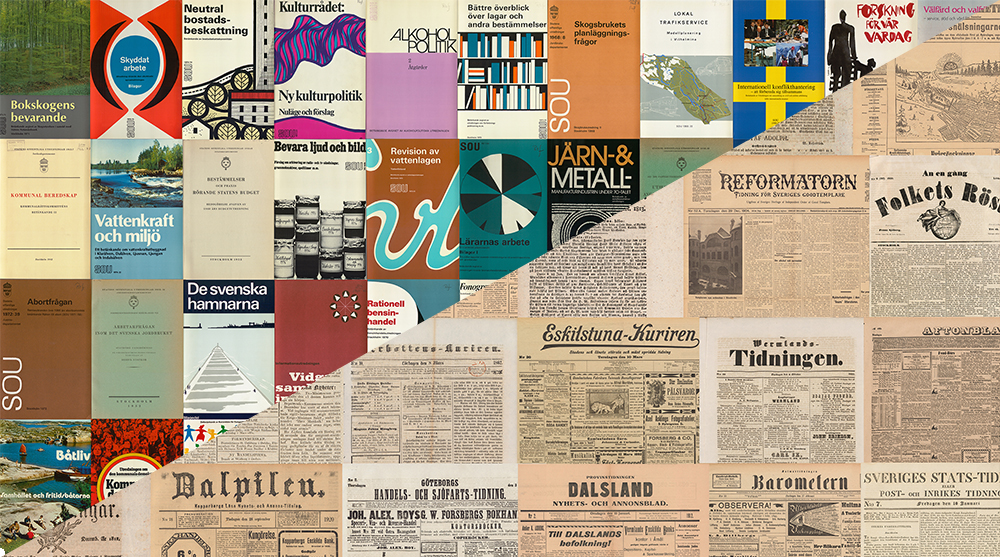KBLab
KBLab enables researchers to engage in large-scale analysis of the National Library’s collections. We also develop language models and work with artificial intelligence.

KBLab is a national research infrastructure for digital humanities and social science. Through the lab we provide access to the library’s collections in structured and quantative form. This makes it possible for researchers both to seek new answers and pose new questions in their research.
The lab is also a forum for play and innovation. We design and make models to analyse the library’s vast collections of text and audio-visual materials in new ways. We test the potential for artificial intelligence to be used within the library, and we co-operate with a range of actors nationally and internationally in doing so.
KBLab is a creative, research-based environment that has rapidly become a central node within data-driven research in Sweden. The lab is directed by Love Börjeson, a researcher in the field of applied language technology.
Initiating research at the lab
Are you interested in collaborating with KBLab in your research? In which case you are welcome to submit an application so we can start a dialogue on your proposed project. The application will be treated according to The National Library’s general process for research collaboration.
Start a dialogue with us early
Get in touch about your application well in advance of any deadlines with external funding agencies. The earlier you contact us, the better! This will allow you to get a better grasp of the possibilities offered by the lab, as well as the range of material in the National Library’s collections. It also helps us in establishing the level of resources required for your project.
Bring your own data scientist
Conducting research at KBLab presumes some experience of managing large data sets and working with R and Python. If you lack such experience, we strongly recommend you include your own data scientist within your project — preferably as early as the planning stage.
Plan to be in Stockholm
A large amount of the material we make available is protected by copyright. This means that you need to plan on coming to the lab in person to access your material. We hope to be able to offer more flexibility on this point in the future.
Research funding
KBLab is open to a wide range of applications for research collaboration. When it comes to research involving the physical site of the lab, though, we need to prioritise projects that have been awarded external funding. It is not generally feasible for us to host students or researchers without such funding.
Curious to find out more?
If you are interested in learning more about data-driven research, new approaches within digital humanities, or you’d just like to experiment, we have compiled the following list of resources:
Play
- Research tool for textual analysis (the National Language Bank, University of Gothenburg) External link.
- Workshop on topic modeling in R (Github) External link.
- Workshop on approaches to webscraping in R (Github) External link.
- Workshops from DHLab, Yale University (Github) External link.
Tools and courses
- More about programming language Python (Stack Overflow) External link.
- More about programming language R (Stack Overflow) External link.
- Test a free, cloud-based version of RStudio External link.
- Tutorials for DH tools and methods (PB Works) External link.
- Guide to designing and starting a DH project (DHLab, YU) External link.
- Tutorials for methods within data-driven research (The Programming Historian) External link.
Examples of research within DH
- Experiments at Library of Congress Labs (LC Labs) External link.
- Wiki with overview of DH scholarship (CUNY) External link.
- Project registry (Reviews in Digital Humanities) External link.
- Archive of projects at the British Library (BL Labs) External link.
- Selection of DH research at Scholars’ Lab (University of Virginia Lab) External link.
- Project registry, Pamphlets (Stanford Literary Lab) External link.
